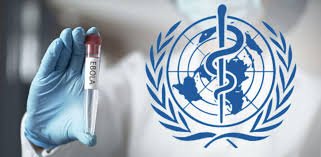AHF: WHO Continues to Fail in Ebola Response
AHF Echoes MSF Call on WHO for Increased Ebola Vaccine in DRC, Greater Transparency

In light of calls for transparency by Médecins Sans Frontières (MSF) amid its disturbing accusations of the World Health Organization (WHO) rationing a lifesaving Ebola vaccine in the Democratic Republic of the Congo (DRC), AIDS Healthcare Foundation (AHF) urges WHO to provide sufficient vaccine quantities in-country to defeat the epidemic, as well as full transparency regarding its vaccination strategies for the response.
MSF – also known as Doctors without Borders – is the medical organization leading the effort to eradicate Ebola in the DRC. They issued a statement yesterday condemning WHO for rationing the highly-effective Merck vaccine and called for full transparency in WHO’s management of the vaccine program.
“With over twenty-one hundred people dead, WHO should be increasing access to the vaccine—not limiting its use through harmful rationing protocols that cause even more deaths,” said AHF President Michael Weinstein. “And why are the inner workings of the response still a complete mystery to the global public health community? MSF is exactly right—the World Health Organization must tell the world what is going on. There’s no reason we should be kept in the dark when the devastation Ebola brings threatens us all.”
Under WHO’s current strategy, only 500-1,000 people per day can receive the vaccine, while MSF says at least 2,000-2,500 could be vaccinated if sufficient quantities were made available.
“It was welcome news during this growing public health crisis in DRC to see the FDA accept Merck’s Ebola vaccine application,” said Weinstein. “It’s slated for a full or final decision in March, but it’s now clear that the vaccine needs to be fast-tracked for approval so that there can be no excuses in the field and to ensure that Congolese citizens have access to this potentially lifesaving vaccine as well as the chance at an Ebola-free future.”
AHF, which lost two doctors in the 2014 West Africa Ebola outbreak, has continually called for WHO to approve the vaccine, as well as for the UN to bolster security in a region where numerous armed groups are attacking health workers and response assets.
“The time has come for bureaucracy and politics to take a back seat, for once, to human lives,” added Weinstein. “The entire global public health system needs a shake-up, and it should start right now with the way WHO and the UN are handling the Ebola response in the DRC.”















































